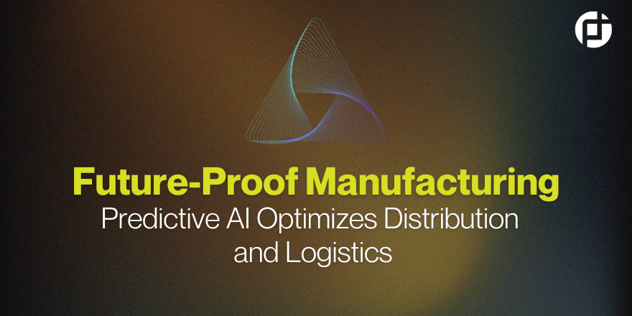
In industrial manufacturing, staying ahead of the competition requires more than just efficient production processes. Predictive distribution and logistics scheduling have become critical components of success in today's global marketplace. With the advent of artificial intelligence (AI), production planners are now equipped with powerful tools to optimize supply chain operations and enhance overall efficiency.
In this blog, we will explore the integration of AI, specifically through the PlanetTogether system, with leading ERP (Enterprise Resource Planning), SCM (Supply Chain Management), and MES (Manufacturing Execution System) platforms such as SAP, Oracle, Microsoft, Kinaxis, Aveva, and others.
The Need for Predictive Distribution and Logistics Scheduling
In the industrial manufacturing landscape, the traditional reactive approach to distribution and logistics scheduling is no longer sufficient. Unforeseen disruptions, market fluctuations, and global uncertainties demand a more proactive and predictive strategy. Production planners are tasked with not only ensuring smooth production on the shop floor but also with optimizing the entire supply chain to meet customer demands, reduce lead times, and minimize costs.
AI in Manufacturing: The Role of PlanetTogether
PlanetTogether, a leading solution in advanced planning and scheduling, leverages the power of AI to provide production planners with a comprehensive toolset for predictive distribution and logistics scheduling. Its ability to analyze vast amounts of data in real-time enables planners to make informed decisions, anticipate potential bottlenecks, and optimize the allocation of resources across the supply chain.
Integration with ERP Systems: Streamlining Operations
One of the key advantages of PlanetTogether is its seamless integration with popular ERP systems such as SAP, Oracle, and Microsoft. This integration ensures a unified approach to data management, allowing production planners to access real-time information from multiple sources in a centralized dashboard. This not only streamlines operations but also enhances decision-making by providing a holistic view of the entire manufacturing ecosystem.
For instance, the integration with SAP brings together the robust capabilities of SAP's ERP system with the predictive analytics of PlanetTogether. This synergy enables production planners to synchronize production schedules, manage inventory levels effectively, and respond swiftly to changing market demands.
SCM Integration: Enhancing Supply Chain Visibility
In addition to ERP integration, PlanetTogether seamlessly integrates with SCM systems, including Kinaxis. This integration enhances the visibility of the entire supply chain, from raw material procurement to final product delivery. By analyzing data from the SCM system, PlanetTogether can predict potential supply chain disruptions, allowing production planners to take proactive measures to mitigate risks and ensure a continuous flow of materials.
MES Integration: Real-time Shop Floor Control
For production planners, effective shop floor control is paramount. PlanetTogether's integration with MES systems, such as Aveva, ensures real-time synchronization between production planning and shop floor execution. This integration facilitates dynamic adjustments to production schedules based on actual shop floor performance, optimizing resource utilization and minimizing downtime.
Benefits of AI for Predictive Distribution and Logistics Scheduling
Enhanced Decision-making: AI algorithms analyze historical and real-time data to provide production planners with actionable insights, enabling them to make informed decisions.
Optimized Resource Allocation: By predicting demand fluctuations and potential bottlenecks, AI-driven systems like PlanetTogether optimize the allocation of resources across the supply chain, reducing idle time and improving overall efficiency.
Reduced Lead Times: Predictive scheduling allows production planners to optimize production timelines, resulting in reduced lead times and faster response to market demands.
Cost Reduction: Efficient resource utilization, streamlined operations, and reduced disruptions contribute to cost savings, enhancing the overall profitability of the manufacturing process.
Challenges and Considerations
While the integration of AI for predictive distribution and logistics scheduling offers immense benefits, it is crucial to address potential challenges. Data security, system compatibility, and user training are key considerations in implementing these advanced technologies. It is essential for organizations to invest in robust cybersecurity measures, ensure seamless integration with existing systems, and provide adequate training to users for a successful implementation.
In the rapidly evolving landscape of industrial manufacturing, the adoption of AI for predictive distribution and logistics scheduling is no longer a choice but a necessity. PlanetTogether, with its advanced planning and scheduling capabilities, combined with seamless integration with ERP, SCM, and MES systems, empowers production planners to navigate the complexities of the modern supply chain with confidence.
By harnessing the power of AI, manufacturing facilities can achieve unprecedented levels of efficiency, responsiveness, and competitiveness in the global market.
The future of industrial manufacturing is here, driven by the intelligent synergy between technology and human expertise.





















LEAVE A COMMENT